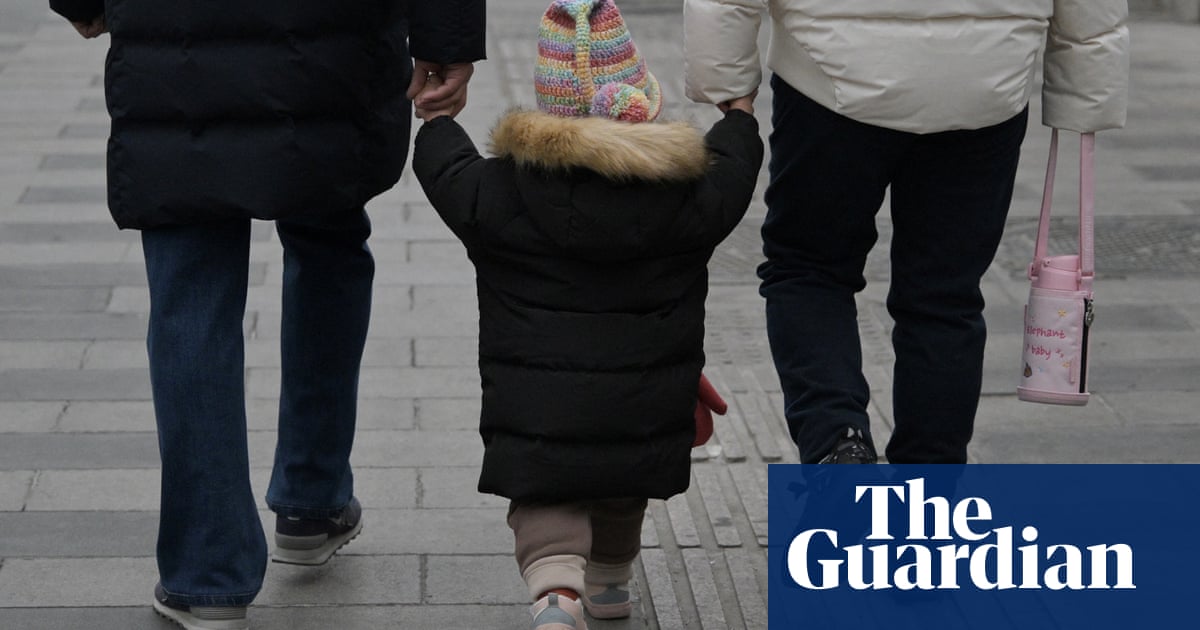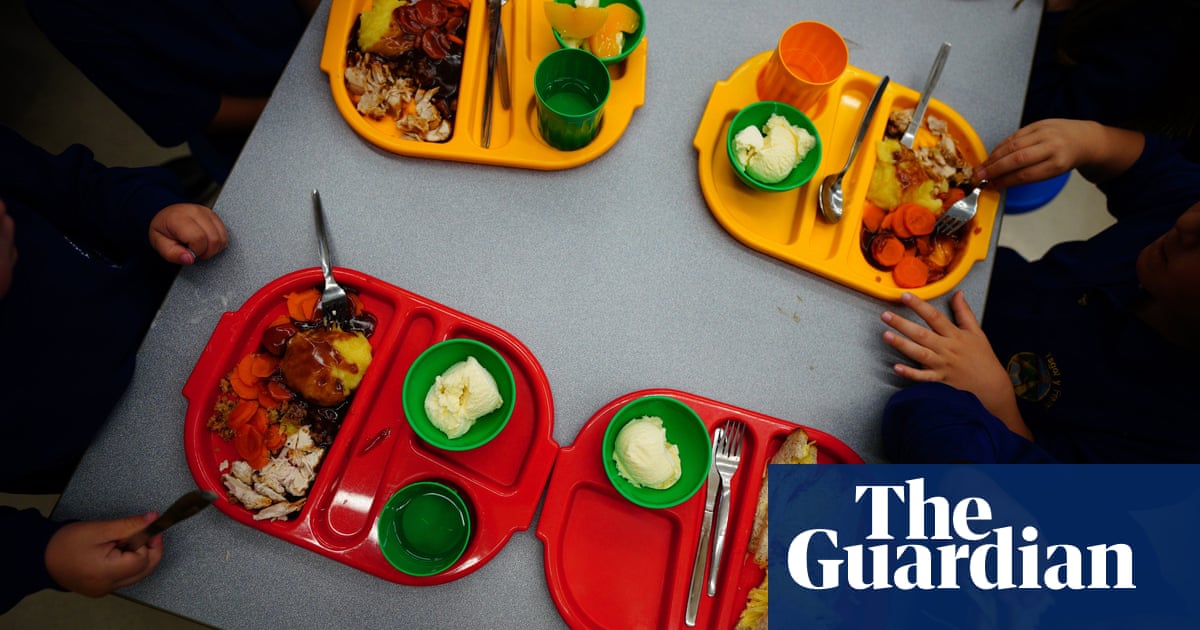
China is one of the most expensive places in the world to raise a child, outstripping the US and Japan in relative terms, a prominent Chinese thinktank has said.
A report released on Wednesday by the Beijing-based YuWa Population Research Institute found that the average cost of raising a child in China until the age of 18 is 538,000 yuan (£59,275) – more than 6.3 times as high as its GDP per capita, compared with 4.11 times in the US or 4.26 times in Japan.
For children brought up in Chinese cities, the average cost rises to 667,000 yuan (£73,488).
In Australia, the researchers found that the cost of raising a child was 2.08 times as high as the average GDP per person. China is second only to South Korea – which has the world’s lowest fertility rate.
The report also addressed the opportunity costs, borne mainly by mothers, associated with having children. Between 2010 and 2018, the weekly time spent by parents on helping with their primary school-age children’s homework increased from 3.67 hours to 5.88 hours.
Mothers tend to suffer a loss in paid working hours and in leisure time as a result of raising children. Fathers only experience a loss in leisure time.
“Due to reasons such as the high cost of child-bearing and the difficulty for women to balance family and work, the Chinese people’s average fertility willingness … is almost the lowest in the world,” the researchers concluded. “Fertility willingness” refers to what people see as the ideal number of children, which in China is less than two, according to several surveys.
The research was led by Liang Jianzhang, a prominent businessman who is also a professor of economics at Peking University
Last year China’s population shrank for a second consecutive year, exacerbating the government’s concerns about supporting an ageing cohort of people with a shrinking number of workers.
The number of births in 2023 was just over 9 million, aabout half the number in 2016.
Women are increasingly inclined to delay or reject motherhood because of the negative impact it has on their careers and finances. In 2017, the government abandoned the decades-old one-child policy, and now encourages women to have up to three children. Some provinces have removed any restrictions on how many children a household can register.
Lijia Zhang, a writer who is working on a book about Chinese women’s changing attitudes towards marriage and motherhood, said that the high costs of education and housing made raising children financially difficult. “Many women I interviewed said they simply couldn’t afford to have two to three children. Some can manage one; others don’t even want bother with one.”
Zhang added: “Another equally important factor is changing attitudes. Many urban and educated women no longer see motherhood as the necessary passage in life or the necessary ingredient for happiness.”
Several local governments in China have introduced measures in attempts to boost the birthrate, from cash subsidies for extra children to discounts on IVF. Superstitious policymakers are hoping that the lunar dragon year – which began on 10 February – might lead to a rise in births as parents plan to have an auspicious dragon baby.
But so far government incentives have made little dent in the stubbornly falling birthrate.
The YuWa report concluded: “The declining birthrate will have a profound impact on China’s economic growth potential, innovation vitality, people’s happiness index and even national rejuvenation … The fundamental reason why China has almost the lowest fertility rate in the world is that it has almost the highest fertility cost in the world.”











